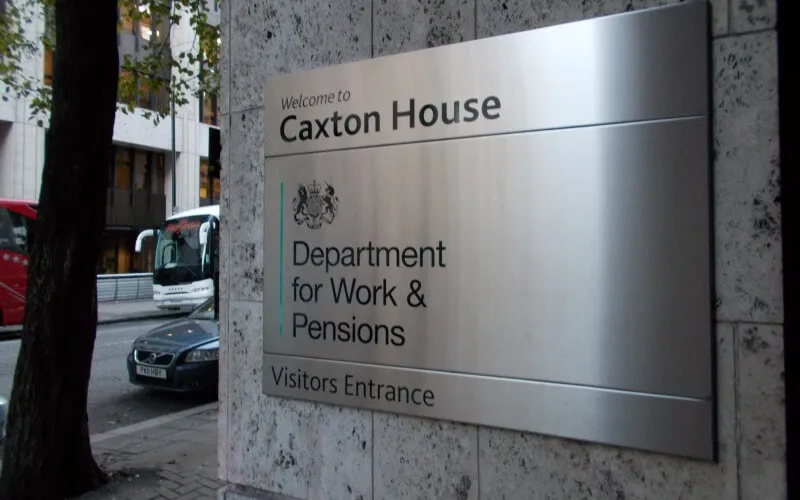Disabled people’s organisations and allies have joined together to issue a series of demands to the government that they believe would help to end employment discrimination against disabled people.
The new Disability Employment Charter makes demands of the government in nine key areas in a bid to address the widespread disadvantage disabled people face in their working lives.
Among the calls is for the government to increase and improve employment support, and to force all employers with at least 250 employees to publish annual data on how many disabled people they employ, and the gap in pay between their disabled and non-disabled employees.
The organisations that have created the charter* include Disability Rights UK (DR UK), the Business Disability Forum and the public services union UNISON, as well as the Disability@Work group of academics, who have played a significant role in raising evidenced concerns about government policy on disability employment.
The charter also recommends reform of the Access to Work (AtW) programme, including a call to remove the current cap on AtW payments for individual claimants.
Earlier this month, Disability News Service (DNS) reported that the new minister for disabled people, Chloe Smith, appeared to be unaware that AtW spending had plummeted during the pandemic.
The charter also includes a recommendation that would prevent ministers continuing to use misleading statistics to suggest that the disability employment gap has fallen under successive Conservative-led governments.
Instead, the charter says, ministers should take account of research which shows that an increasing proportion of people are self-identifying as disabled, when calculating the gap in employment between disabled and non-disabled people.
Disability@Work has shown that the disability employment gap has not narrowed at all since 2010, once account is taken of this increasing disability prevalence.
Among other calls for action, the charter says the government should force employers to make decisions on reasonable adjustment requests by disabled employees within two weeks.
And it says the government should ensure that all decisions to award public sector contracts should take account of the percentage of disabled people in the workforce of the organisation that wins the tender.
The charter also calls for reform of the government’s much-criticised Disability Confident scheme, to ensure that all employers signed up to the upper levels of the scheme employ a minimum percentage of disabled people, while entry level members have to improve their performance on disability employment or lose their accreditation.
Among disabled people’s organisations to have signed the charter so far are Spinal Injuries Association, Disability Cornwall, Disability North and Living Options Devon.
Kamran Malik, DR UK’s chief executive, said: “Disabled people face a range of hurdles in finding and progressing in work, which just shouldn’t be there.
“The charter simply and powerfully sets out the concerted actions that government needs to take to move the dial forward.
“It’s not enough to tinker round the edges, we need a bold plan to bring down the barriers.”
The disabled Conservative peer Lord Shinkwin said: “The government should stop using business as a feeble fig leaf for inaction and instead celebrate the example some corporates are already setting.
“Transparent and consistent data reporting, the lead call of this charter, is the first step towards building a level playing field on which businesses can compete for top disabled talent.
“It’s time the government built on the success of gender pay gap reporting and realised the potential of this tool to bring about true meritocracy and equality of opportunity.”
Diane Lightfoot, chief executive of Business Disability Forum, added: “The charter sets out the responsibilities that we all have – as business, government and providers – to work with disabled people to find solutions and to recognise the valuable contribution that everyone can make to the workforce.”
A DWP spokesperson said: “The National Disability Strategy** sets out probably the widest-ranging set of practical actions to improve the lives of disabled people ever developed, including improving inclusion in the workplace and tackling the disability employment gap.
“Through our green paper***, we are also exploring ways the welfare system can better support the needs of disabled people and people with health conditions to enable them to live independently and access work.”
*The charter was drawn up by Business Disability Forum, the DFN Charitable Foundation, Disability Rights UK, Disability@Work, Leonard Cheshire, Scope, Shaw Trust Foundation, UNISON and the University of Warwick
**Analysis of the strategy, published by DNS in August, exposed how it was “full of tweaks and not much substance”, and how ministers had padded it out with scores of consultations, reviews and vague pledges
***Disabled people have raised serious concerns about the green paper, Shaping Future Support, particularly suggestions that ministers want to cut future spending on disability benefits and merge personal independence payment with universal credit. These suggestions were repeated and reinforced at this month’s Conservative party conference
A note from the editor:
Please consider making a voluntary financial contribution to support the work of DNS and allow it to continue producing independent, carefully-researched news stories that focus on the lives and rights of disabled people and their user-led organisations.
Please do not contribute if you cannot afford to do so, and please note that DNS is not a charity. It is run and owned by disabled journalist John Pring and has been from its launch in April 2009.
Thank you for anything you can do to support the work of DNS…

 Minister finally admits that working-age benefits spending is stable, despite months of ‘spiralling’ claims
Minister finally admits that working-age benefits spending is stable, despite months of ‘spiralling’ claims Timms says cuts must go ahead, despite being reminded of risk that disabled claimants could die
Timms says cuts must go ahead, despite being reminded of risk that disabled claimants could die Timms misleads MPs on DWP transparency and cover-ups, as he gives evidence on PIP review
Timms misleads MPs on DWP transparency and cover-ups, as he gives evidence on PIP review